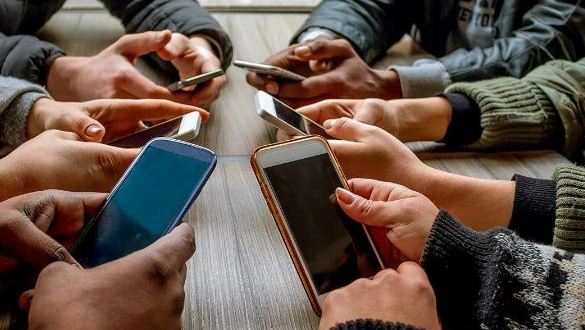Talking about how involved we are with social media does not take much effort today. We can see it for ourselves. It’s all around us. And, there is a school of thought that vouches for the fact that it is making us ‘anti-social’ to the core. But, I have learnt recently, that technology is actually making you ‘hyper-social’ and not ‘anti-social’!
A study (published in Frontiers in Psychology) on dysfunctional use of smart technology has revealed that smart-phone addiction could be ‘hyper-social’, not ‘antisocial’.
We all know how people are addicted to their phones and at every public place we can spot them with their eyes glued to the screens of their phones, constantly texting and checking out what their friends are up to on social media. Or reaching out to click that perfect selfie or groupie! Whether you are waiting for an auto or moving in the metro, or working in offices or even while driving – people are totally engrossed in their phones. It makes one wonder, what did we do before smart phones came? These are examples of what many consider to be the ‘antisocial’ behaviour, a phenomenon that has garnered a great deal of media attention in the past few months. This phenomenon has led investors and consumers to demand that tech giants address this problem.
Perhaps we have become anti-social, via smartphone addiction. Historically, the human being has been labelled a social animal; and humans have evolved to be a uniquely social species, who require constant inputs from others to develop culturally-appropriate behaviour. But, the survey findings reveal that this preoccupation with the mobile, is also a way for seeking inputs – for humans to find meaning, etch out personal goals and a sense of identity.
While social media continues to mesmerize you, here is an example of new terms of engagement in restaurants. A restaurant in Japan allows you to pay for your meal by washing the dishes. If a person eating at the restaurant has a cash crunch and needs to resort to other means to pay for the food, he can. He can work there – either taking orders and clearing plates or washing dishes! No, this is not a scene from a movie – it is not ‘reel’ but real life. This Japanese restaurant allows cash-strapped diners to pay for their meals with the promise of free labour. Mirai Shokudo, located in the capital city – Tokyo’s already has provided around 500 people meals for free labour! There is a flash of social responsibility here. The eatery established in 2016, by an ex-techie, Sekai Kobayashi intends to include poor people of the society as well, who otherwise would not be able to afford the food at the restaurant. Should anyone eating at the restaurant wish to pay back by working there, he or she needs to work for a period of 50 minutes! Interestingly, Kobayashi is the only permanent employee of the restaurant, and she publishes the financial details of the business online and also advises others on how to launch a new restaurant. Explaining her journey as she moved from coding to cooking, after having got vocational training at a leading restaurant chain, she has many tips for anyone wanting to start their business. And, her word of advice to those looking for jobs, for those who feel that making the wrong choice could ruin the rest of their lives – it is ok. You can change course later, for that may eventually lead you to a more desirable destination!






Be the first to comment on "Mobile addiction is not bad after all…"